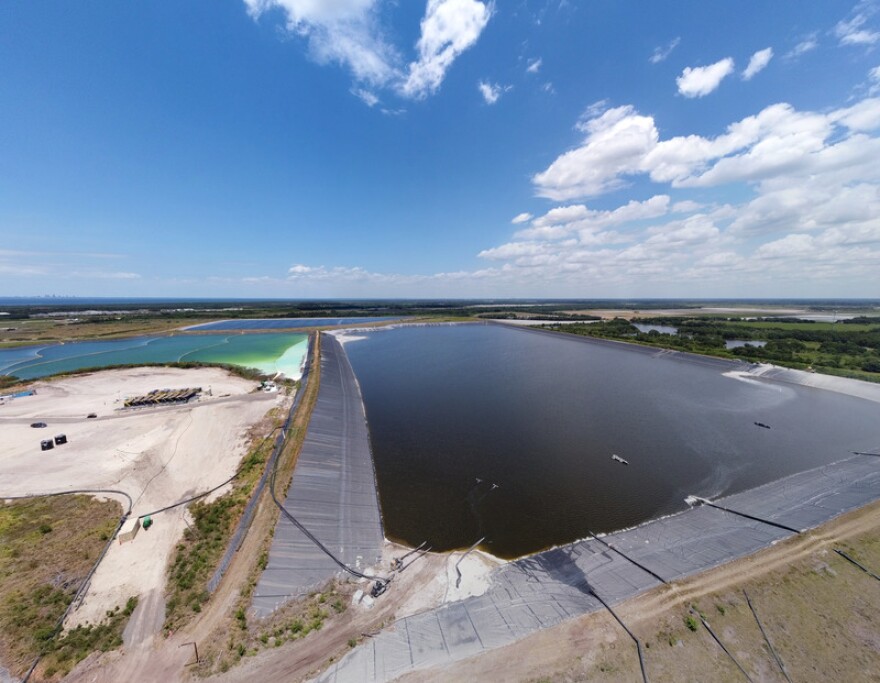Rainwater is being removed from the Piney Point gypsum stacks in Manatee County as the plant is being readied for permanent closure.
The state Department of Environmental Protection says rainwater is being siphoned from a pond where it has collected over the past few months.
Officials say this is not like the phosphate process water that was released on a massive scale into Tampa Bay last year, which fueled algae outbreaks and likely contributed to red tide that killed untold numbers of fish and marine life.
Much of the hundreds of millions of gallons of phosphate process water that remains in the stacks is expected to be injected into an underground aquifer.
Scientists will take samples from around Tampa Bay to monitor possible impacts from the rainwater release. Environmental regulators say the pond will be modified so that it will no longer accumulate rainwater in the future.









